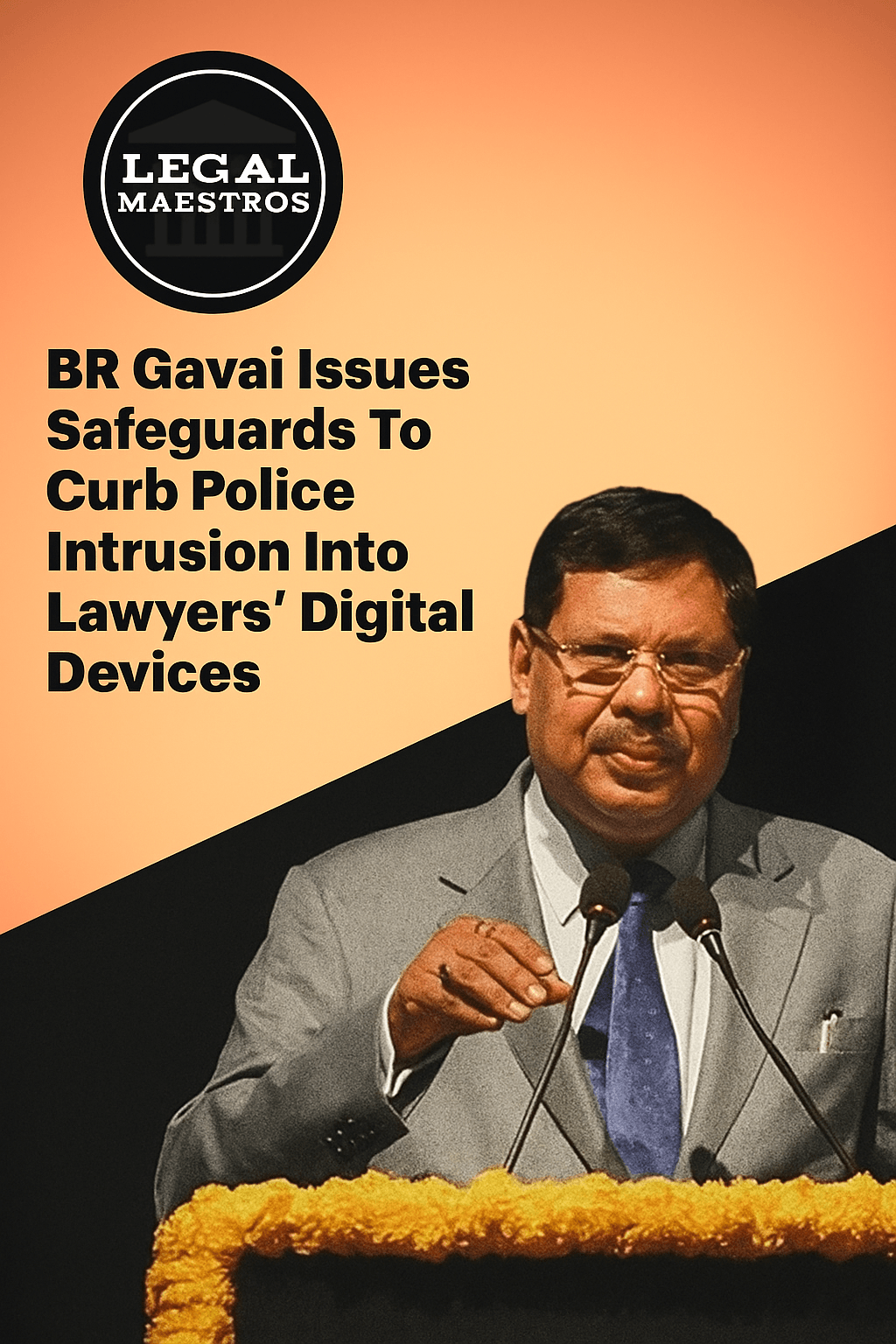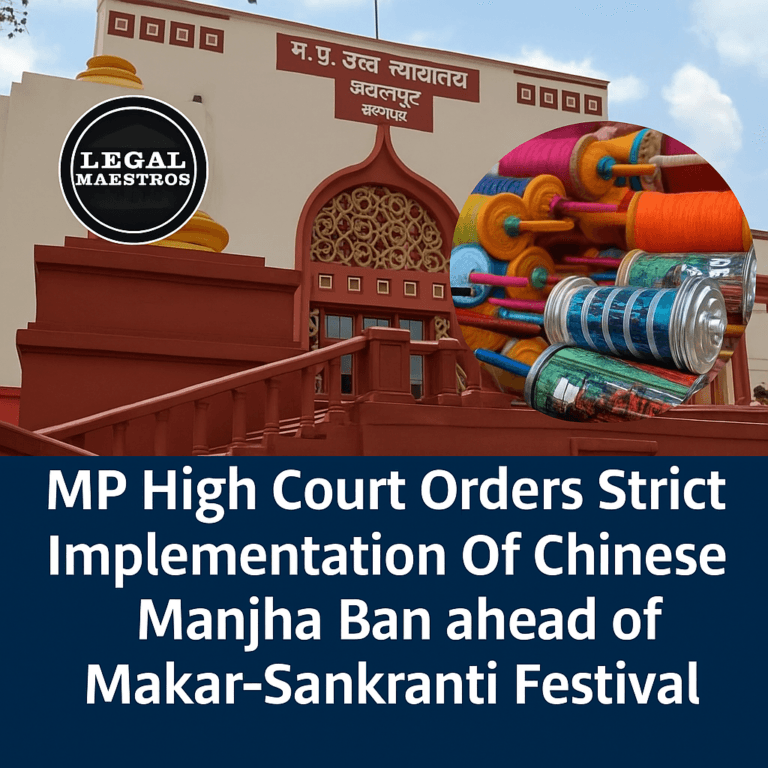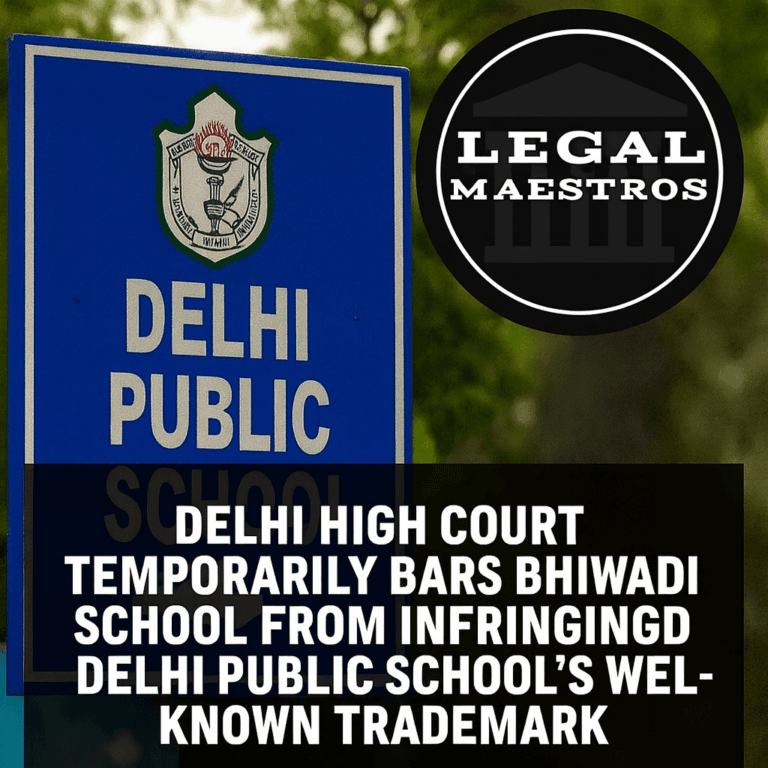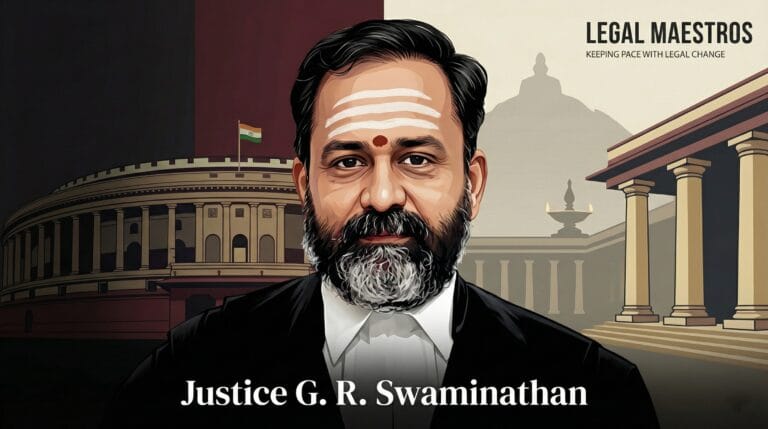
BR Gavai issues safeguards to curb police intrusion into lawyers' digital devices
Lawyer-Client Privilege is Strengthened by Supreme Court.
Supreme Court of India has in a historic decision made essential protections to the secrecy between lawyers and their clients. These new guidelines were given out by a bench led by the Chief Justice of India B.R. Gavai in an attempt to limit the authority of police and investigating agencies to carry on with the practice of roving and fishing inquiries of the digital devices of the advocates. This ruling is considered as a significant move towards the strengthening of the secrecy needed in the legal profession.
The judgment was made in a suo motu case by the special bench that also comprised of Justice K. Vinod Chandran and Justice N.V. Anjaria. This implies that the court assumed the matter without a petition. This was done as a result of mass hysteria following investigation in agencies where the Enforcement Directorate had called senior advocates to reveal some information concerning cases of their clients.
Such actions were highly protested by the different bar associations such as the Supreme Court Bar Association. According to them, calling an attorney due to legal counseling they had offered to a client is a form of instilling fear. They argued that, this practice compromises the independence of the legal profession and the right of a citizen to a fair trial and good legal representation.
For any queries or to publish an article or post or advertisement on our platform, do call at +91 6377460764 or email us at contact@legalmaestros.com.
The new protections of the Supreme Court are aimed at providing a formidable wall of protection to the privileged communication of lawyers. This decision is a clear indication that lawyers may not be over the law, but the sensitive information that they possess cannot be accessed at will. This ruling strikes a nice balance between the requirements of a criminal investigation and the most basic rights provided under the Constitution.
The Sacrifice of Attorney-Client Privilege.
The fundamental basis of the ruling is the legal privilege of attorney-client. It is an old rule, which has been enshrined in Section 132 of the Bhartiya Sakshya Adhiniyam (BSA), 2023. This right guarantees that any communication, advice or document exchanged between a lawyer and a client in a confidentially manner to facilitate legal proceedings is not revealed.
The bench headed by Justice Gavai was repeatedly reiterating that it is not the privilege of the lawyer but of the client. The attorney is merely the protector of that classified data. This is necessary as this gives a client the freedom of talking openly and frankly to his or her legal counsel to enable the lawyer to make appropriate defense.
The court also associated this privilege with the Constitution of India. This confidentiality was seen to be an extension of the Articles 20(3), which provides the client with a constitutional protection against self-incrimination. By compelling a lawyer to reveal the information that was told to them by his or her client, police would be equivalent to compelling the client to testify against himself or herself.
Due to this basic right, the court decided that an investigating agency could not directly summon a lawyer who appeared in case to extract the facts of the case to him. A lawyer is not forced to act as a witness against his or her client. The court said this would severely affect the independence of the legal provision as well as the right to counsel.
New Strict Rules on Summoning Lawyers.
The court defended lawyers although it made it clear that such protection is not unconditional. When a lawyer is not performing his role as a legal counsel, and he is suspected of being a comforter or co-conspirator of a crime, the privilege is not applicable. The privilege is there to guard legal counsel and not criminal activity.
The Supreme Court made this exception a high procedural barrier to avoid its misuse by investigating agencies. A law enforcer can no longer make an independent decision to invite law representation. A senior officer now has to authorize this decision so as to make sure that it is not arbitrarily made and to intimidate the lawyer.
The new rule states that the summons to the advocate should be granted previously by a superior officer in writing. This officer should be of the rank of a Superintendent of Police or lower. This senior officer will also have to write down, in detail why he or she feels that the summons is needed and how the case qualifies as an exception to privilege.
Moreover, the summons alone should indicate clearly on what facts the exception is being invoked upon. This is in a way that the lawyer would know exactly what the reason is as to why they are being summoned and would be able to prepare and resist it. The court also upheld that any such summons can be reviewed by the courts implying that the lawyer or the client can immediately question the legality of such a summons before a court of law.
New Protection of Seizing Digital Devices.
The most important section of the decision concerned the confiscation of personal digital devices. The bench appreciated that a laptop, computer or mobile phone of a lawyer constitute a virtual office. The information in these devices is enormous and highly sensitive and privileged not only of a single client, but that of their clients generally, and which are not related to the investigation.
The court declared that police cannot just take the device used by the lawyer and force him to give the password to engage in the roving and fishing investigation. This practice has now been banned. The new safeguards will safeguard data of all other clients with which the particular case under investigation is not related.
In the new process, an investigating officer has no authority to take over the digital gadget of a lawyer in case the officer feels like doing so. The only thing that the officer can do is to instruct the lawyer to bring out the device in the presence of the jurisdictional court. The equipment should not be given to the investigating officer and brought to the police station to be analyzed.
This new regulation makes the court the custodian of confidential information of the lawyer and not the police. This judicial check is the most significant protection to avoid the police having the wholesale access to the entire digital life of a lawyer and secret of all his clients.








